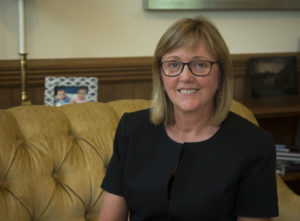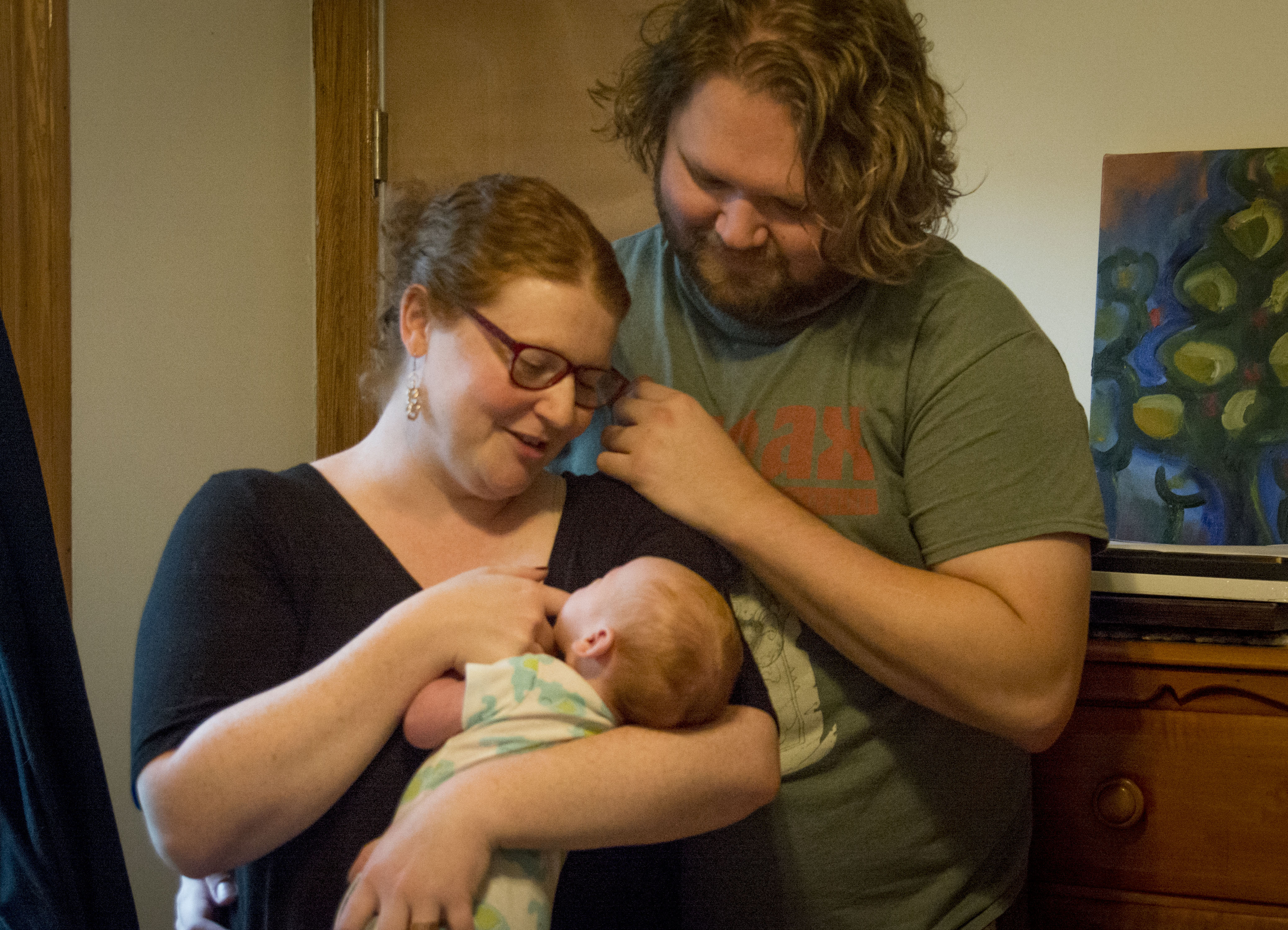New England has long held a reputation as a hub for higher education. Just in Massachusetts, colleges and universities employ more than 120,000 people.
The experience of working at a college can vary greatly campus-to-campus, and that includes employee benefits like parental leave for staff and faculty. One college in the Pioneer Valley is trying to set a new standard.
“This is my first child and it’s been a roller coaster ride,” Amanda Huntleigh said with a laugh.
Huntleigh works as a choral director and lecturer works as a choral director and lecturer in the music department at Smith College. But since August, she’s been focused on her new son, Aramis.
“He’s only at the point developmentally right now where he can sometimes be away from me,” she said last month at her home in Northampton. “And the thought of having to drop him off for 40 hours a week is horrifying.”
But Aramis isn’t headed to daycare just yet. Huntleigh is one of the first Smith College employees to take advantage of the school’s new parental leave policy.
This summer, Huntleigh was pregnant when the private women’s college announced it would extend paid leave for a child’s primary caregiver. Staff, who had eight weeks paid leave before, now get 12 weeks paid. And faculty who previously had been relieved of teaching for a semester, now get a break from administrative duties, too.
The policy also extends leave times and reduces teaching loads for non-primary caregivers.
“My first thought was, ‘This was awesome before and now it’s even better,’” Huntleigh said.
As of 2015, the Bureau of Labor Statistics reported 14 percent of university, college and junior college employees had access to paid family leave. That’s slightly higher than the U.S. workforce as a whole.
And that number has an impact on the profession, according to Mary Ann Mason. She’s a law professor at UC berkeley and co-author of the book, Do Babies Matter: Gender and Family in the Ivory Tower.
“The baby issue is the main reason why academics drop out of the pipeline,” Mason said. “Often at the graduate school level.”
In the last decade, Mason said, she’s seen more universities catch onto the trend of increasing family leave time, which she said is important for keeping women in academia. But she said traditionally, in this competitive profession, women have been expected to keep up with male colleagues at any cost.
Kathleen McCartney, president of Smith College, knows that first-hand.
When I was an assistant professor, there was no parental leave policy,” she said. “I did ask for a course reduction, and I was told it would not be fair to the men in my department.”

In the three decades since, McCartney said, not enough has changed. That concerns her not just as a mother and grandmother, but as a researcher. She’s spent the bulk of her career as a psychologist studying early childhood development.
“In the United States, there is really no guarantee of paid parental leave…although some businesses do offer it, but not enough and not for long enough,” she said.
In 2015, McCartney published an opinion piece in the Boston Globe arguing just that, and that op-ed prompted her to reconsider Smith’s policies. Now, she said, she hopes Smith’s change might lead the way for other schools.
Among the Five Colleges — Amherst, Hampshire, Mount Holyoke, Smith and UMass — family leave policies vary widely school-to-school, from a few weeks to whole semesters, unpaid to fully paid, and with different benefits for faculty or staff.
Amherst College, for example, offers staff four weeks of paid leave for the birth or adoption of a child. Staff could get to 12 weeks at full pay, but they would need to combine benefits such as the school’s short-term disability program, sick time or vacation days.
Mason said there are plenty of reasons why institutions are hesitant to adopt lengthier leave policies.
“It is expensive for universities to offer lavish absences,” Mason said. “It does slow projects down. There’s no easy way to say that everything’s going to be the same when someone’s out for six months or six weeks.”
That’s especially true in higher education, where there’s already pressure to keep research output high and tuition prices low. But McCartney said she’s optimistic Smith’s new policy will accommodate new parents without too much disruption to the classroom — or the budget.
“In most cases, we’re not replacing faculty and staff, instead other people are taking on other responsibilities,” she said.
Amanda Huntleigh said she is grateful for that flexibility.
“Planning to have a baby rarely fits in with the academic career path, so we finally just decided we were doing it whether it made the most sense or not,” Huntleigh said.
Huntleigh is 35, and she and her husband waited a few years to have a child. She said it’s just a coincidence that Aramis arrived right in time for Smith’s policy change.
“Having never done this any other way,” she said, “I don’t know how people who don’t have this time manage it.”
Listen to this story on New England Public Radio
